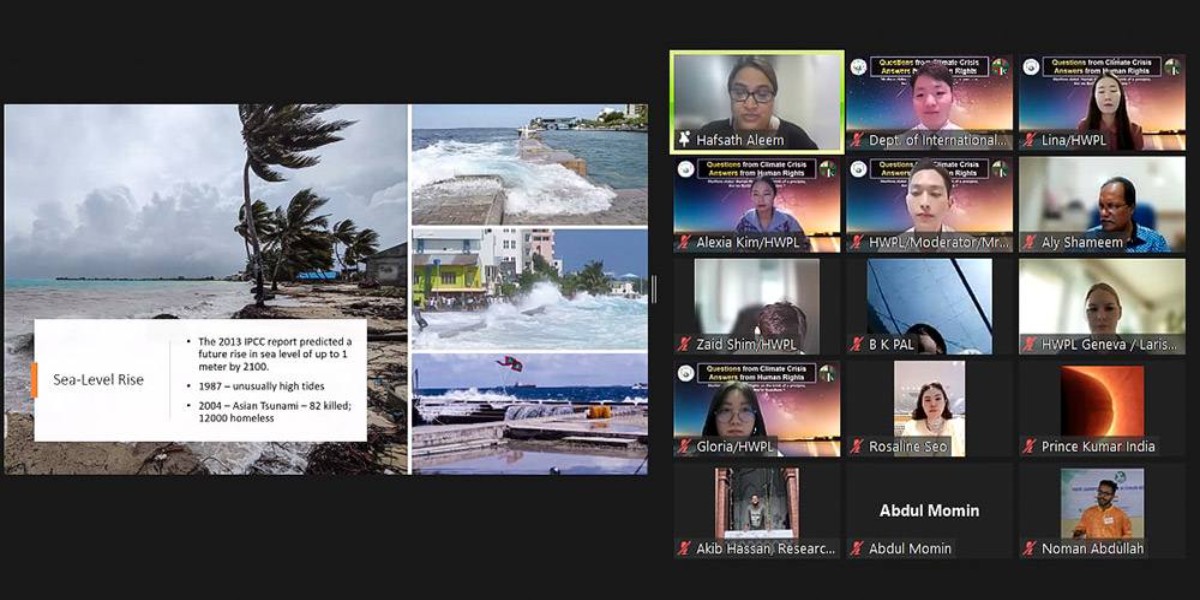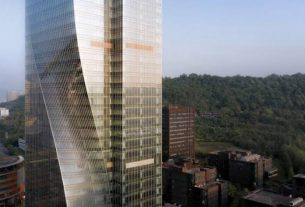On October 22nd, HWPL held a human rights webinar in the Maldives, following the webinar in Bangladesh in July, on the topic of “Questions from the Climate Crisis, Answers from Human Rights: Maritime states’ Human Rights on the brink of a precipice, Are we Bystanders or Guardians?”
Approximately 50 people, including human rights activists, environmental activists, law professors, lawyers, students, and NGO heads from South Asian countries, including Bangladesh, India, and Pakistan, attended this webinar.
The presenters of this webinar informed that the Maldives and other maritime countries are facing disasters caused by climate change, such as floods and coastal erosion caused by sea level rise, threatening the human rights of citizens. In a situation where the climate crisis led to a threat to human rights, they had time to communicate through webinars so that citizens of maritime countries could learn the fundamental value of human rights and cultivate a sense of ownership to protect them.
Dr. Aly Shameem, an assistant professor at the Department of Social Science, Faculty of Arts at Maldives National University, expressed concern and stated, “The right to self-determination is recognized in Article 1 of both ICCPR and ICESCR and Article 1 and 55 of the UN Charter. Climate change may destroy the statehood of Maldives. Undisputedly, the impacts of climate change constitute a threat to the enjoyment of the right of the people of Maldives as a nation to live peacefully.”
Mr. Prince Kumar, a research scholar in the Department of Law at Panjab University in India, emphasized the importance of protecting women’s human rights during the climate crisis. He stated, “The vulnerabilities as a natural disaster creates exposes women and marginalized gender to a series of sexual harassment and violence. Floods also catalyze crimes like human trafficking by causing unemployment and loss of livelihood. As of yet, there is no international treaty that prevents gendered violence during floods directly. In the backdrop of such findings, it’s rather important to assess the multidimensional and intersectional impact of floods and bring reforms in disaster response, mitigation, and adaptation mechanisms.”
The speakers at the webinar used their respective expertise to emphasize the need for active efforts by civil society and practical, step-by-step discussions to realize human rights protection today.
Uz. Ali Rasheed Ahmed, a Maldives lawyer and a social worker, emphasized the mindsets of global citizens in dealing with the climate crisis and said, “we must act to minimize the consequences of climate change. If we can’t help most citizens within a meter of climate change, the world won’t help either.”
In addition, Mr. Ashtosh Kumar, an assistant professor at the Department of International Human Rights and Environmental Law at Amity University in India, said, “Climate change is causing small island countries to lose land and become climate refugees. So these Issues are required that, From my side, it’s now a never situation.”
Mr. Abdullah Norman Raju, a law student at Jagannath University in Bangladesh, shared his impression of attending the webinar. He stated, “It is very relative to now this century because we know that climate change is a very vulnerable problem and challenge that we will face in the next case. So, this is a very vulnerable time when we have to question this. The main thing is human rights because we all have the same rights and equal rights to face these challenges. We need to coordinate and collaborate.”
HWPL plans to periodically conduct human rights webinars related to climate change and help South Asia overcome the risks caused by climate change. To protect human rights in the face of climate change, HWPL will strive to raise citizens’ awareness of subjectivity and achieve solidarity between countries.




